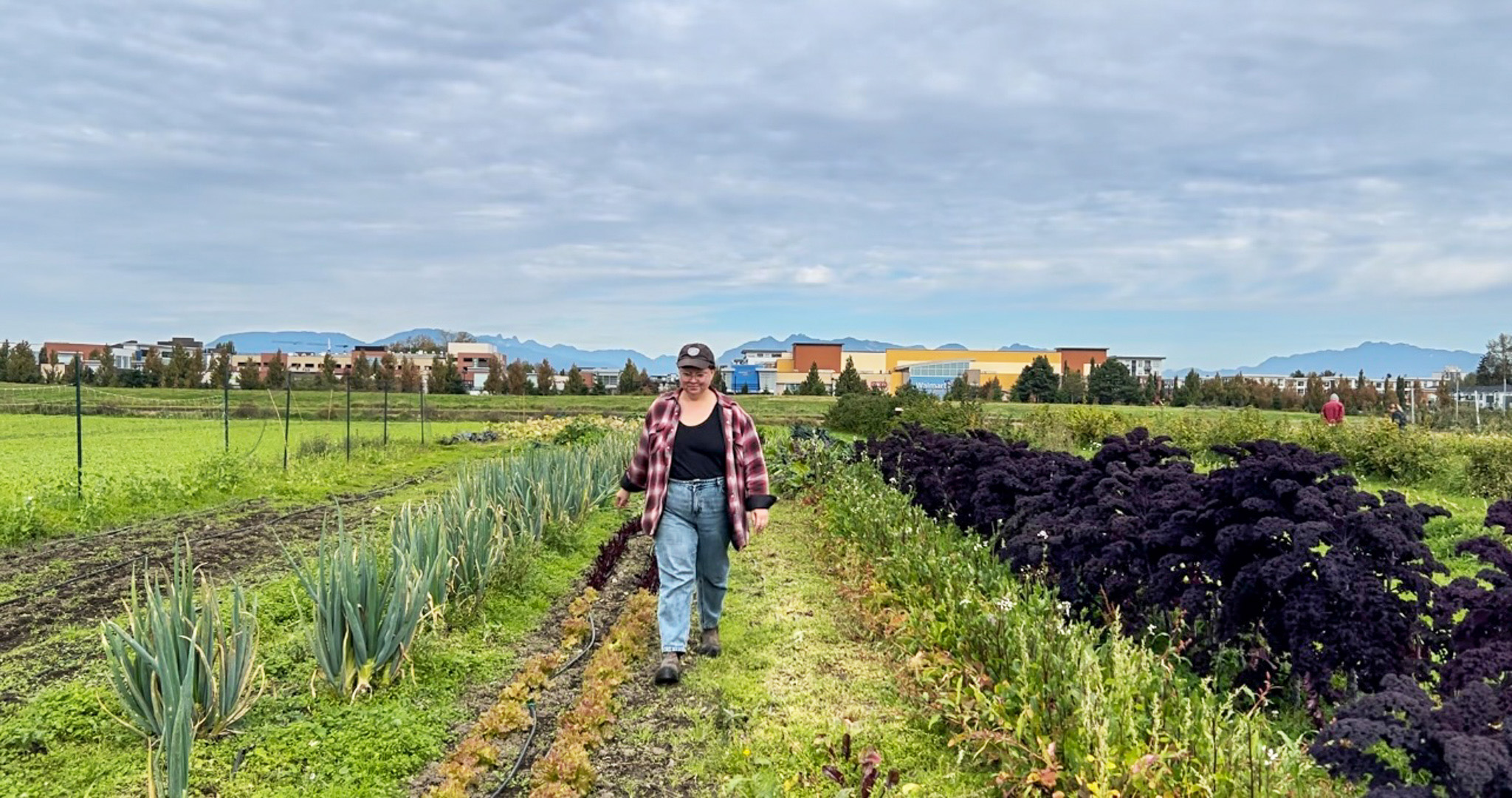A $100,000 grant from Coast Capital Savings will support sustainable farming and community engagement through Kwantlen Polytechnic University’s (KPU) Farm School Program.
The funding will further the program’s ongoing collaboration with Indigenous communities to support their food sovereignty goals. This involves working closely with communities to identify their aspirations and needs, training community members to build capacity and providing technical guidance and support.
“We’re grateful to Coast Capital Savings for their investment in the program,” says Dr. Kent Mullinix, Director of KPU’s Institute for Sustainable Food Systems. “This funding will allow us to continue working towards cultivating truly sustainable regional food systems by advancing the diverse food sovereignty goals of B.C.’s Indigenous communities.”
“As a social purpose organization committed to building better futures for our members, employees and broader communities, we recognize that a better future is dependent on a healthy, thriving planet,” says Maureen Young, vice president, Coast Capital. “We are signatory to the Net Zero Banking Alliance committed to reaching Net-Zero emissions by 2050; one way we are supporting the transition is by investing in programs to help people in Canada upskill or reskill for careers in the low-carbon economy.”
The program has brought several Indigenous team members on board to help design culturally appropriate engagement strategies and lead the engagement process. At KPU’s Richmond Farm School, Shannon Hanson, who is Coast Salish from the Klahoose First Nation, plays a pivotal role in building and strengthening relationships with Indigenous communities as an Indigenous Foodways Community Outreach Facilitator.
“Community engagement is very key when working with Indigenous communities, and the grant will help build those relationships stronger,” says Hanson. “With these programs, Indigenous communities have been learning the basic tools to plant and harvest and establish their own food sovereignty.”

Regenerative and sustainable farming practices are also key components of the program.
“Regenerative agriculture is very important because we need to steward the lands that we’re guests on and encourage biodiversity rather than destroying it,” says Liza Moser, Farm Schools Coordinator. “We need to work with nature to maintain these lands to be able to produce healthy food for our communities.”
The KPU Farm Schools Program is operated by the university’s Institute for Sustainable Food Systems. The program aims to inspire community-focused, small-scale organic, regenerative agriculture through knowledge mobilization.